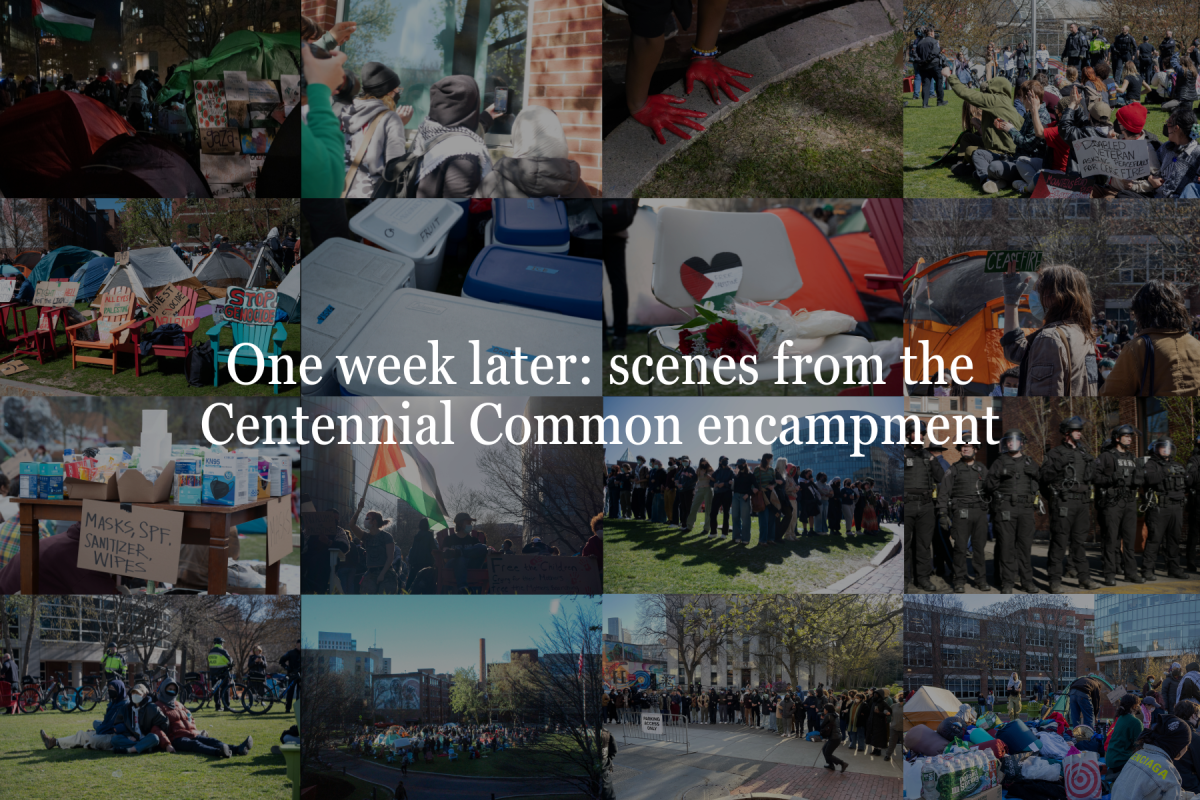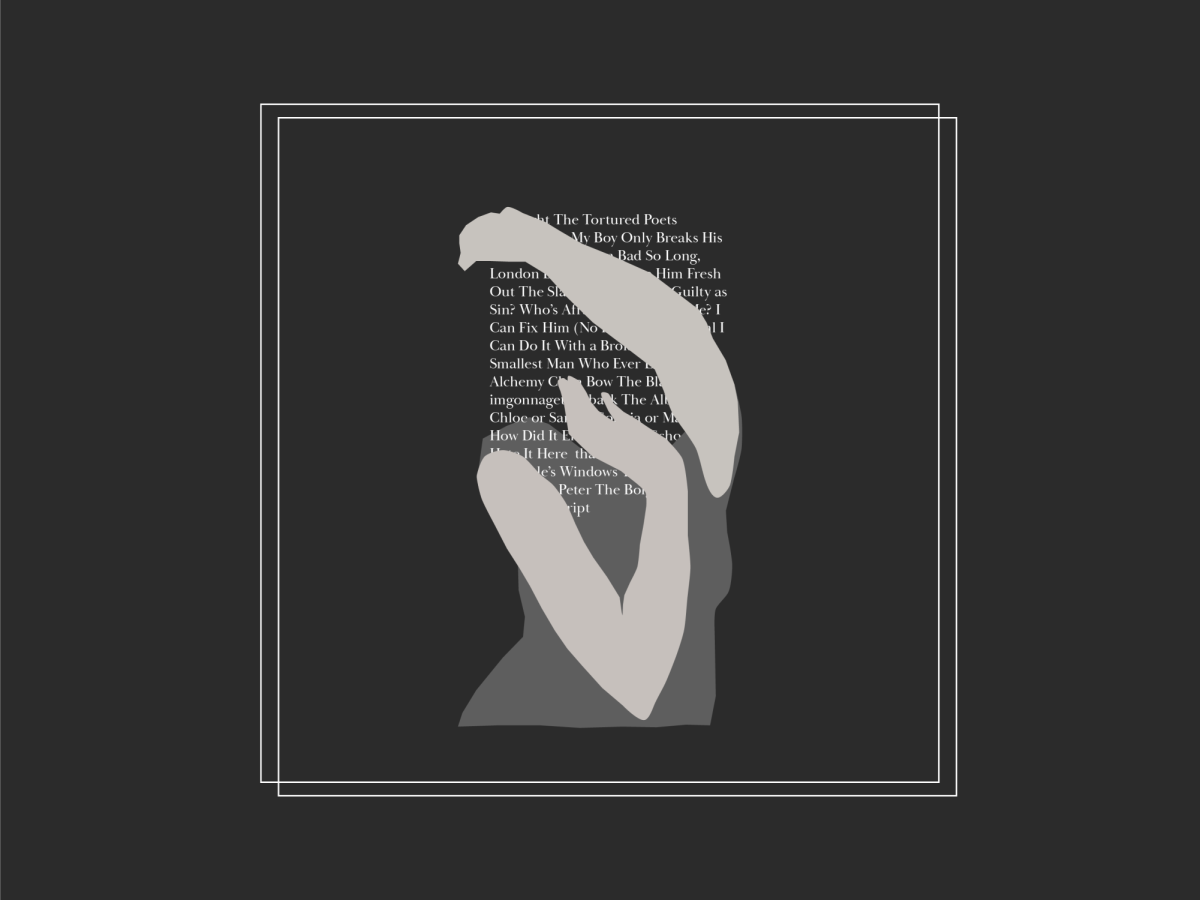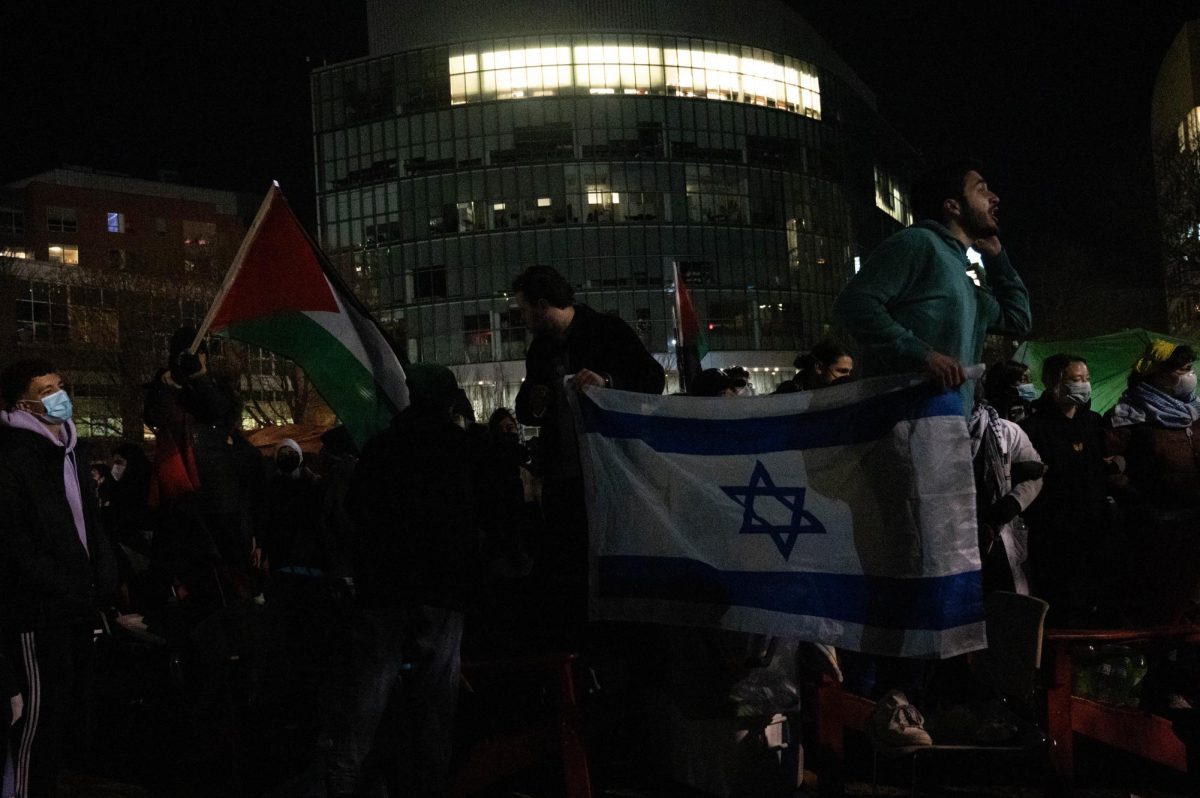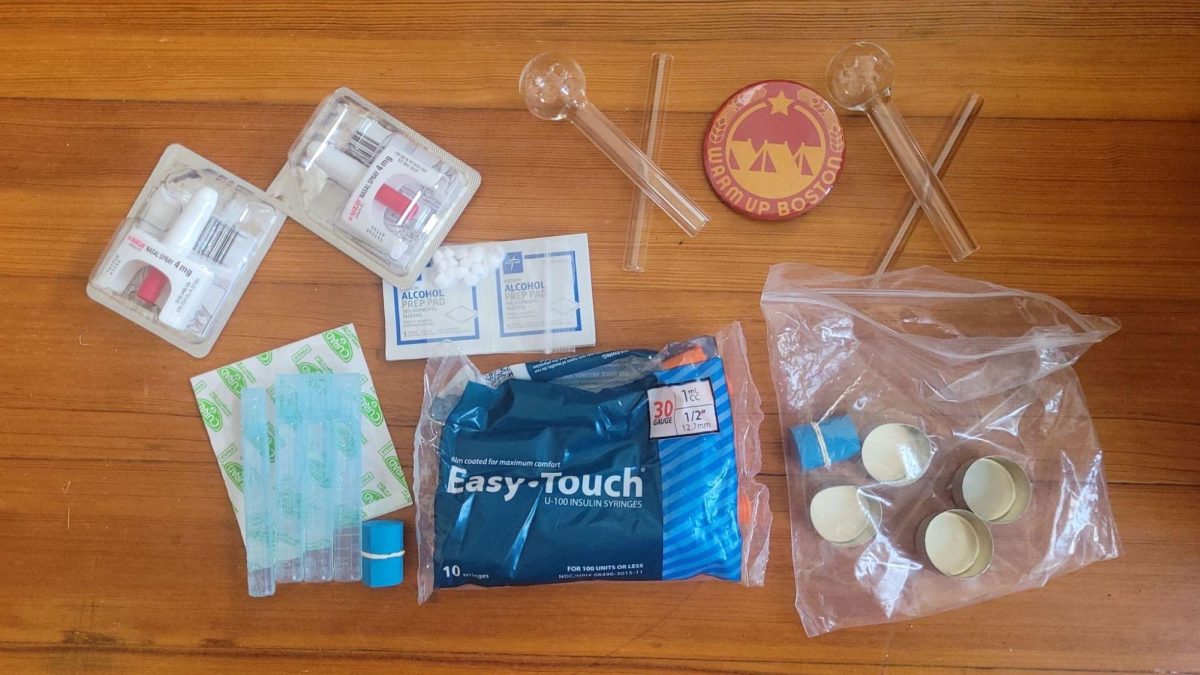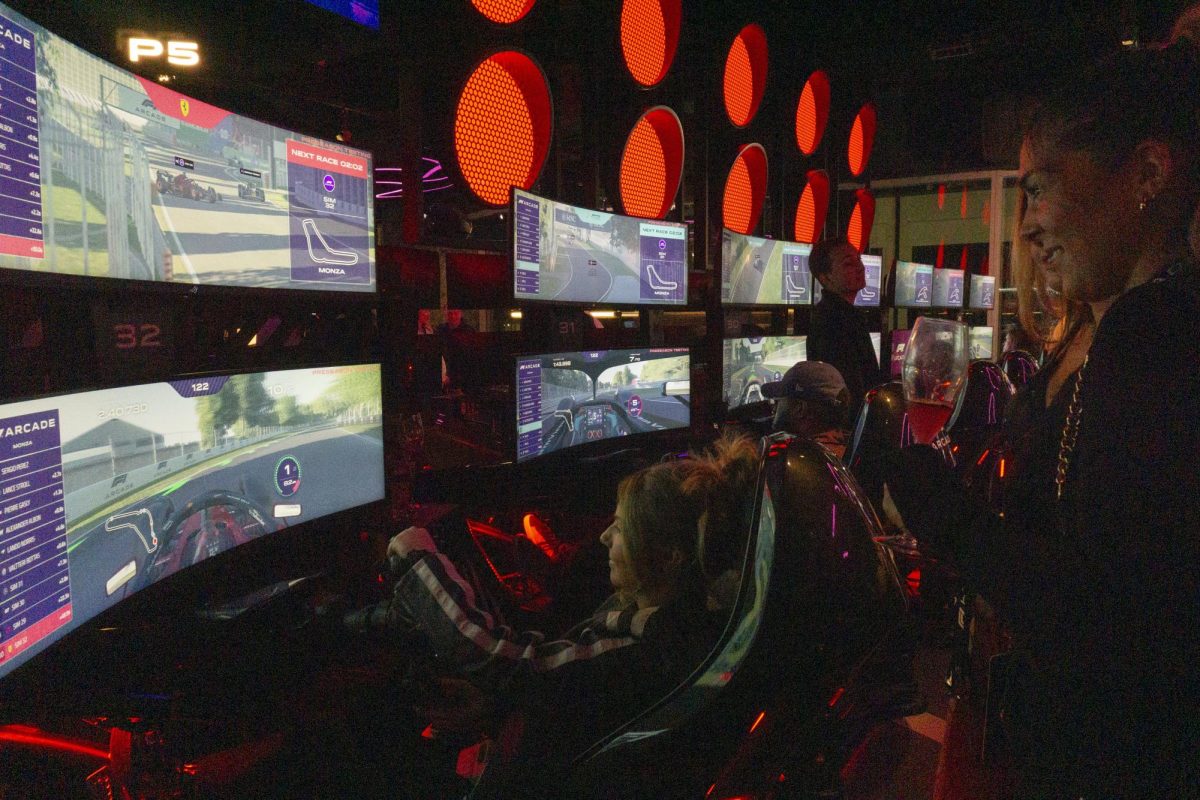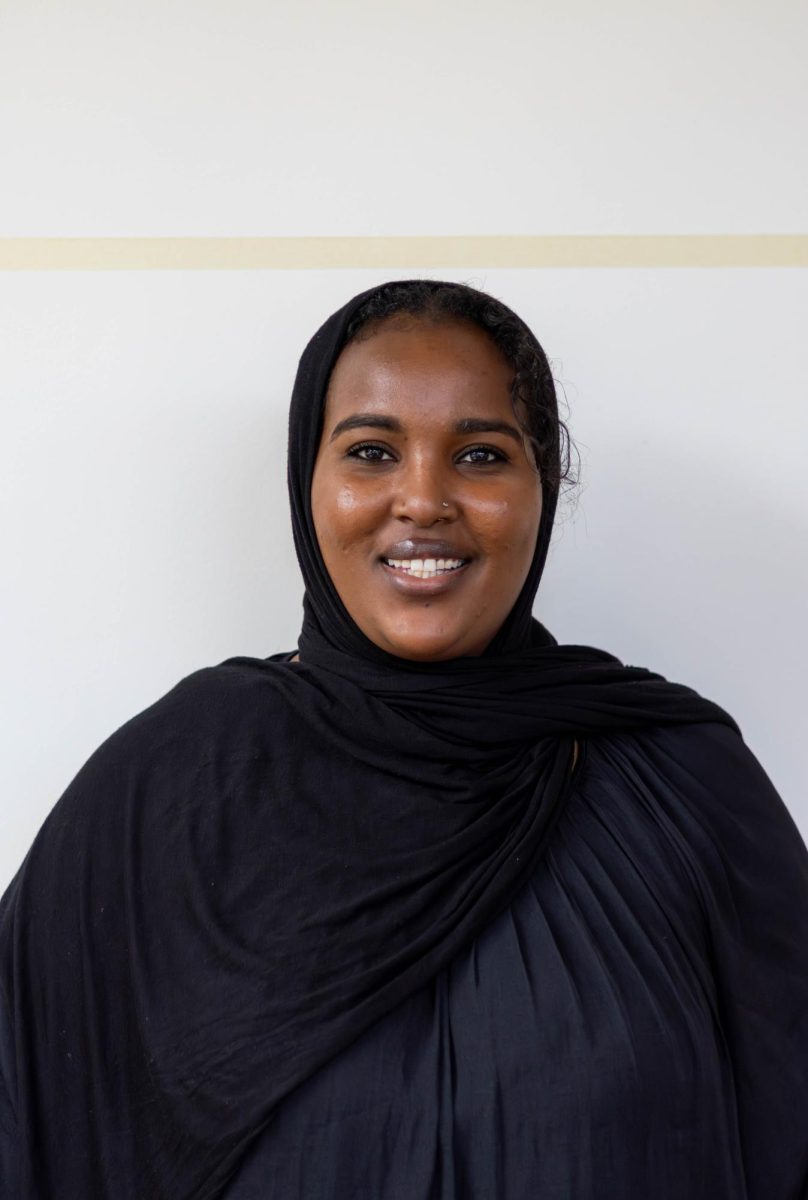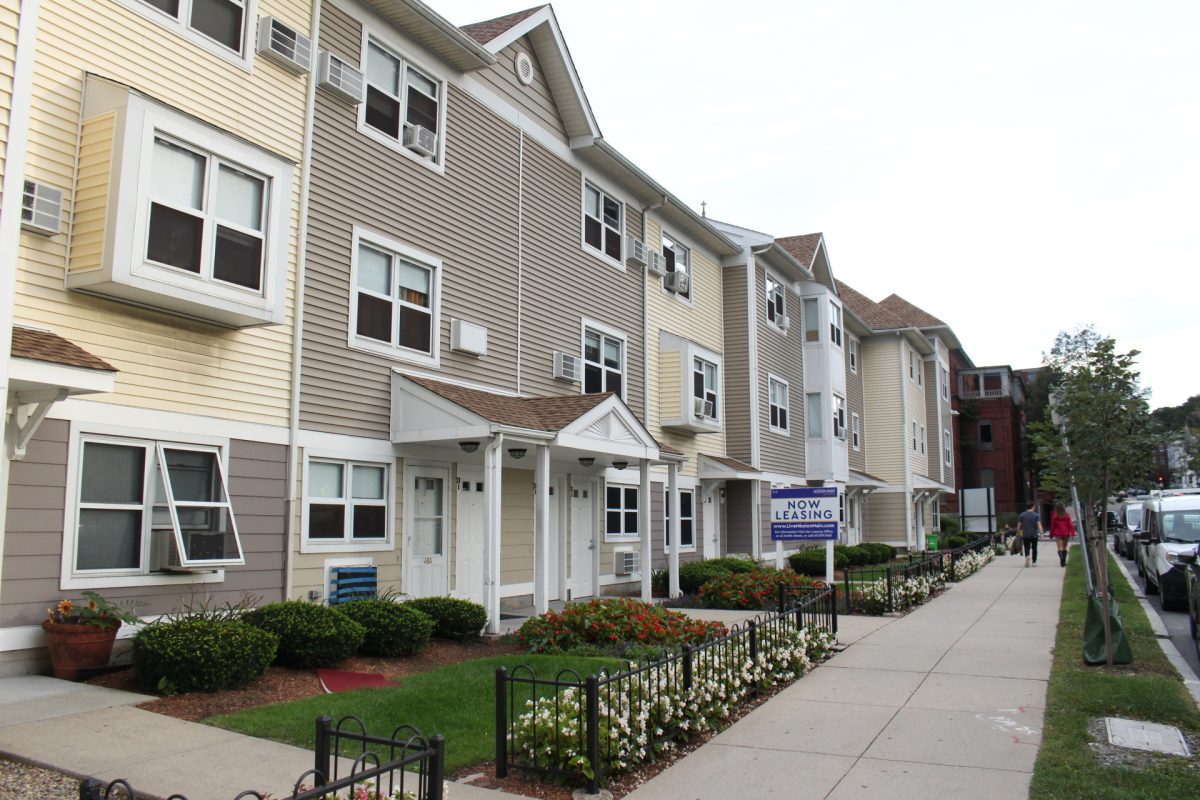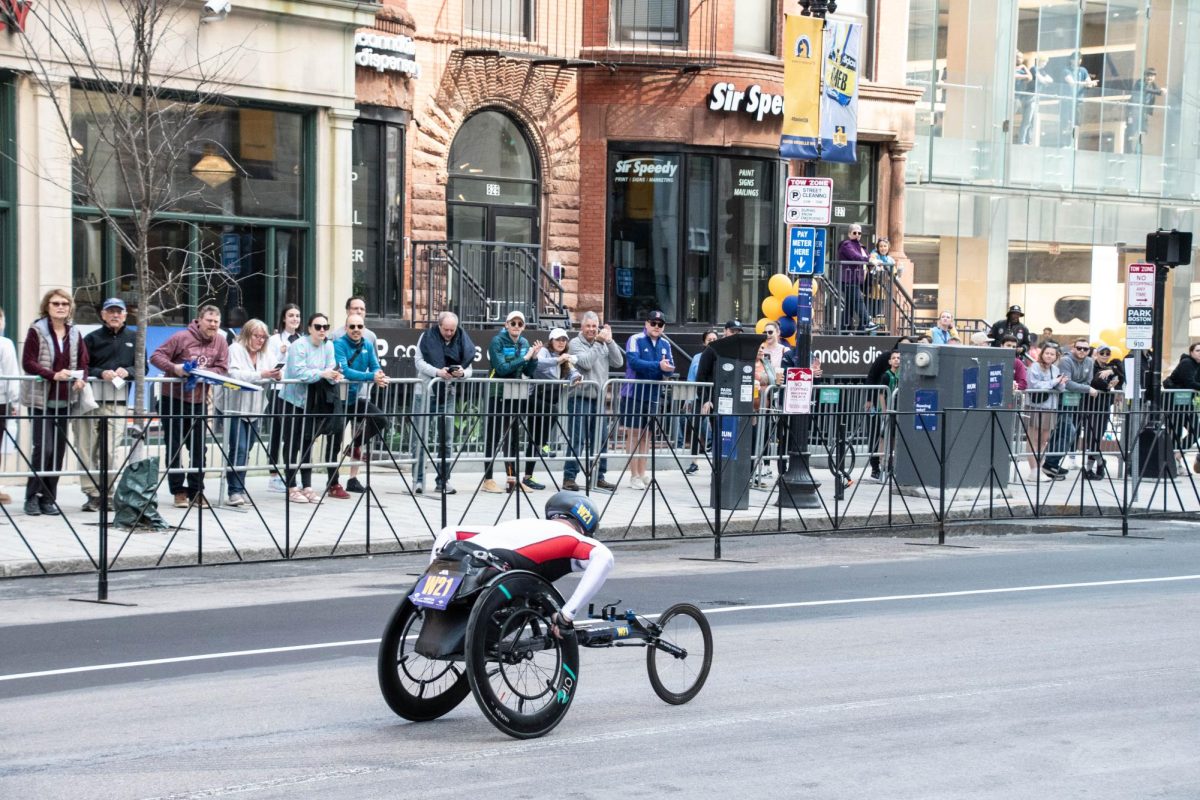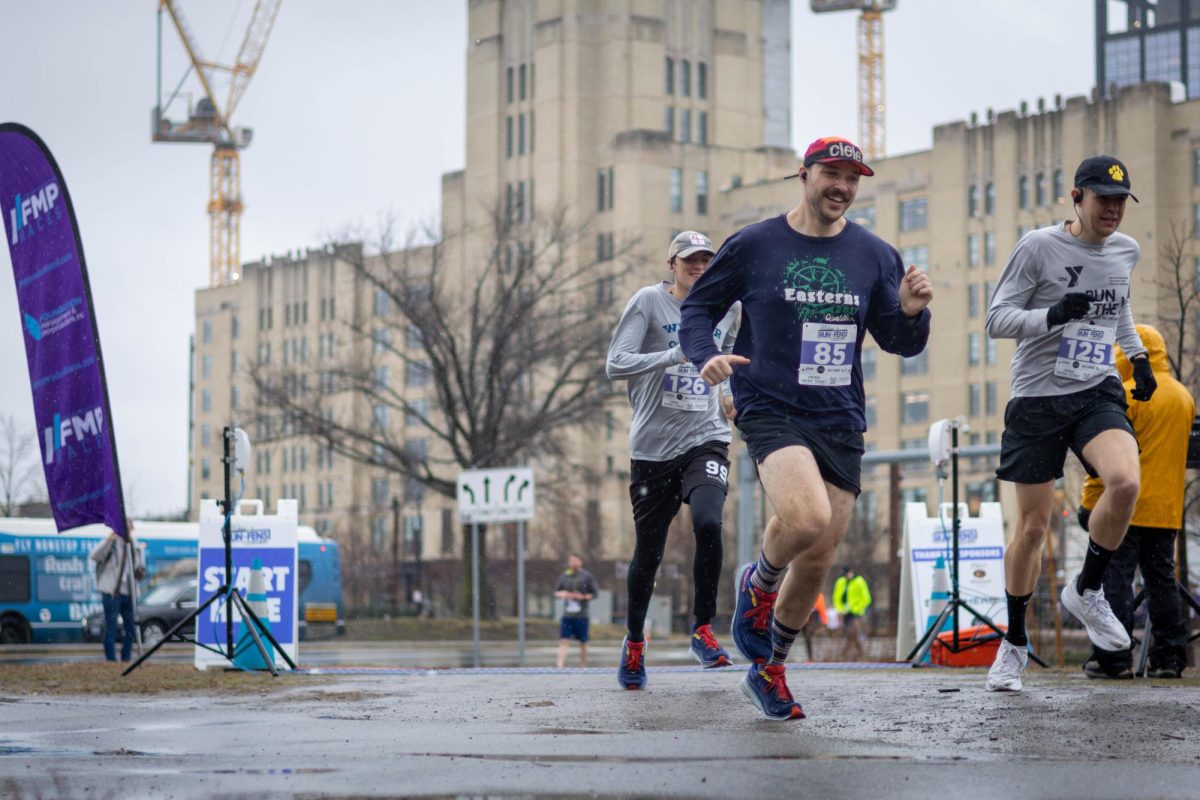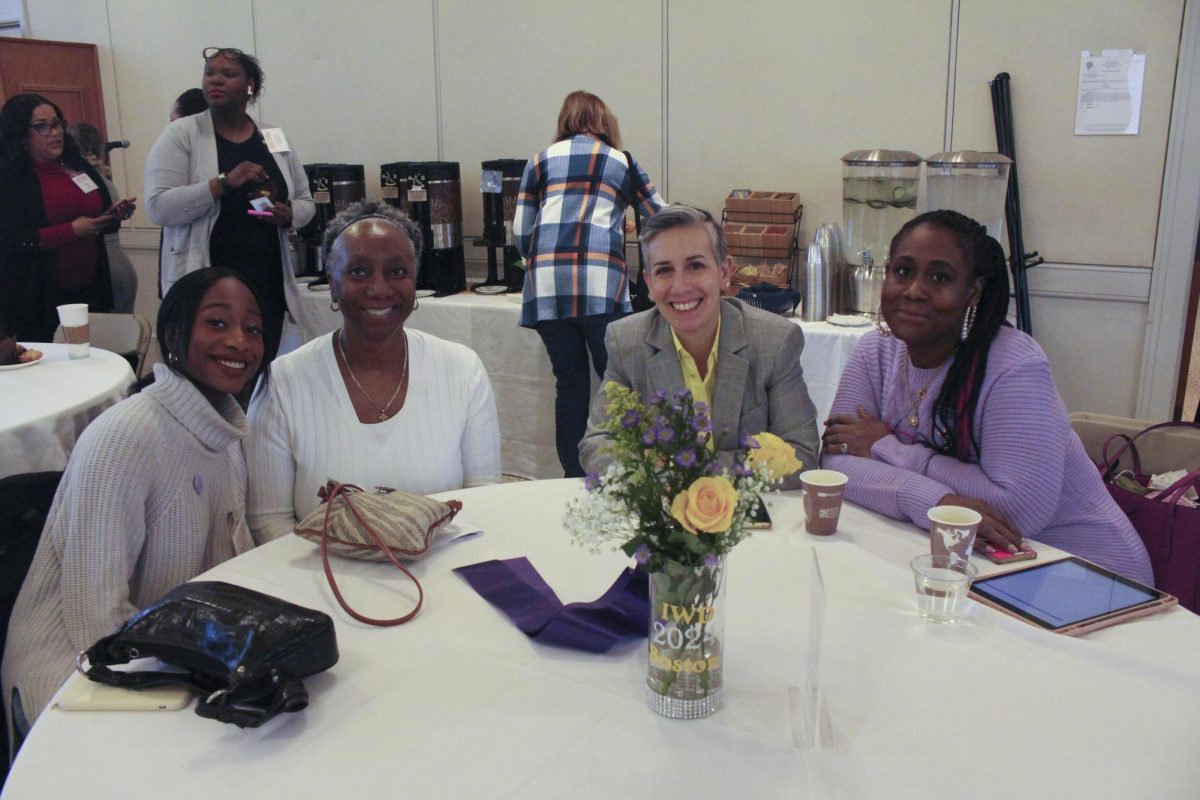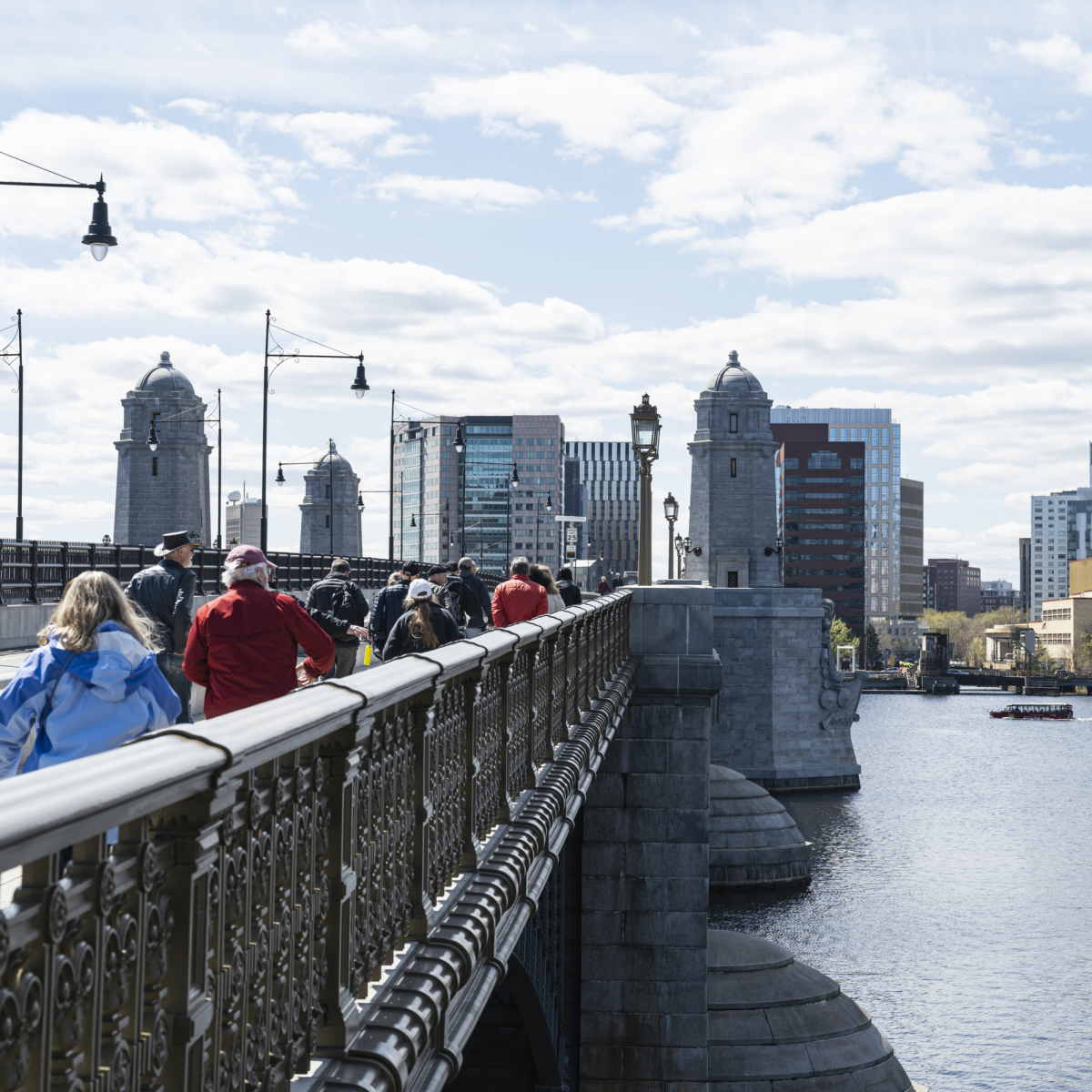A mutual aid network in Boston is on a mission to uplift unhoused individuals where it matters. Warm Up Boston, founded in 2020, provides meals, clothes, harm reduction equipment and funds directly to unhoused people in Boston.
Twice a week, Warm Up Boston holds distributions to donate supplies, one in Downtown Crossing and one that is a mobile pop-up that changes depending on needs across Boston, said organizer Cole Price.
“My original goal was to just raise money and help out the Freedom Fighters Coalition,” said founder Vincent Jaclard, who originally sought donations for items to help people keep warm during harsh Boston winters. “We just kept getting donations and eventually it turned into an [organization].”
The organization garners most of its support and donations online. “We do occasional shows where we table and sell t-shirts … but at the end of the day, it 100% comes through social media,” said organizer Miguel Maron.
The group finds that direct monetary contributions are the most efficient means of aid. “When it comes to material donations, a lot of extra time needs to be considered … making time to be around to collect donations from folks,” Jaclard said.
This makes it easy for anyone to get involved by making donations online, and in-person volunteers are also greatly needed by the organization to collect supplies and manage distributions.
“Volunteer retention would be a pretty big [problem],” Jaclard said, but this year things have changed. “There’s been a lot more people who have stuck with it, and I think the [organization] is growing in that way for sure.”
Within the last six months, the organization has consisted of a core group of around 14 organizers and about 45 additional volunteers.
In terms of material goods, the most helpful donation that Warm Up Boston receives is harm reduction supplies to ensure safer substance use. Syringe kits, safe injection kits and smoking supplies donated from harm reduction agencies sets the organization apart from many others in the area, Maron said.
Harm reduction is a principle of mitigating drug use by accepting that substance use is a reality for unhoused individuals and choosing to minimize its effects rather than ignoring or condemning them. Providing safer means to use drugs over potentially dangerous means they might find on their own meets people “where they are at,” and is a step in addressing substance abuse in a way that maintains respect for those suffering from addiction.
“Those sorts of things really help us connect with the community,” Maron said. “It really provides people another avenue of access that they wouldn’t normally have.”
A lack of resources and housing are not the only perils that unhoused individuals face in Boston. Police sweeps of encampments jeopardize the little temporary shelter people can find, losing tents and many of their belongings to state authorities and leaving them with nowhere to go.
Recent new policy by the Boston city government has banned encampments, a move slated to make it more difficult for the daily life of Boston’s unhoused population.
Mitigating the effects these sweeps have on unhoused people is part of Warm Up Boston’s mission. “We have ears in a lot of state agencies,” Maron said. “At this point in our organization, we have a pretty good sense of when something’s coming. That helps us organize a response and try to stay on top of things to the best of our ability.”
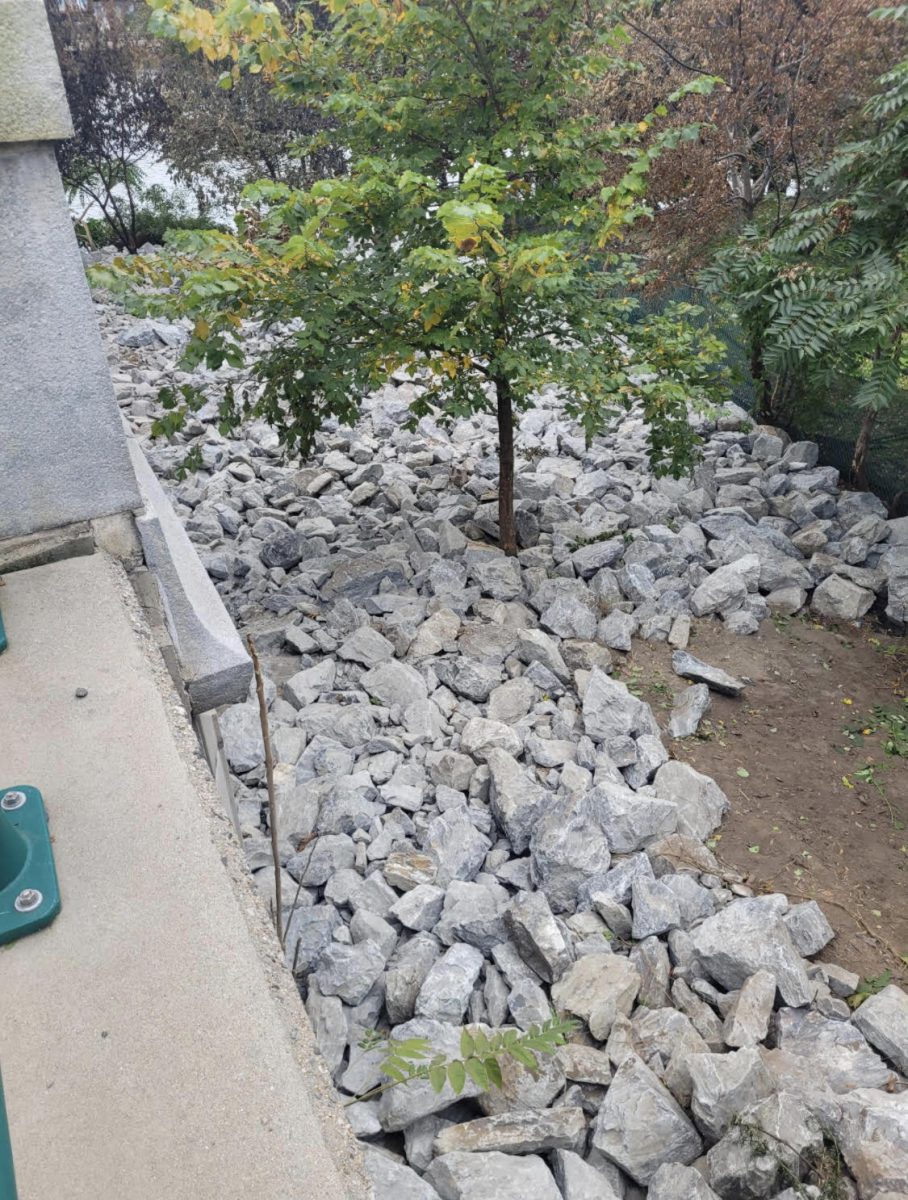
In addition to helping people move and salvage belongings, organizers sought to challenge the sweep.
“We learned from previous sweeps kind of how to act. We wanted to agitate a little bit,” Jaclard said. Making a banner reading “sweeps are violence,” the group was able to push back against the police presence and spread word of the harm sweeps cause.
“You could hear the cops being like, ‘what do they mean by sweeps are violence?’ So hearing encampment residents explain to the cop why sweeps are violent was beneficial,” Jaclard said.
Overall, the organization seeks to build a sustained community presence through a harm-reduction approach. The unhoused population is experiencing a constant cycle of traumatic experiences, Maron said.
“Anything that we’re doing to make their lives slightly easier, the effects of it multiply … you can really see the material change that happens in a community,” Maron said. As the organization grows, they hope to multiply that change.
Warm Up Boston is also hoping to expand their efforts across Massachusetts. “We’re seeking to collaborate with other mutual aid organizations in the future,” Price said.
“The work is never really done,” Jaclard said. Constant experimenting of how to distribute resources and establish a system that is functional in the long term is an ongoing challenge for the network. “There’s always something more to be doing.”


